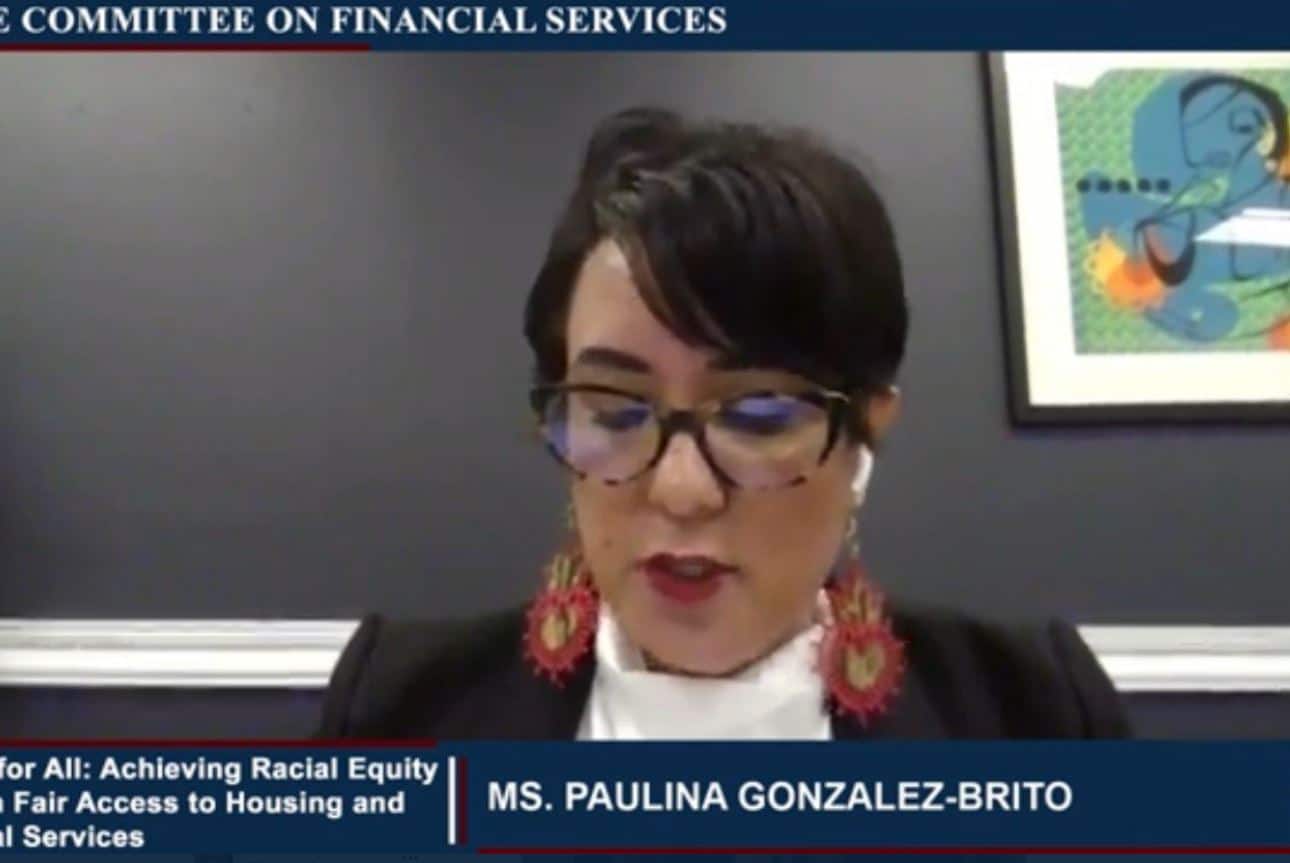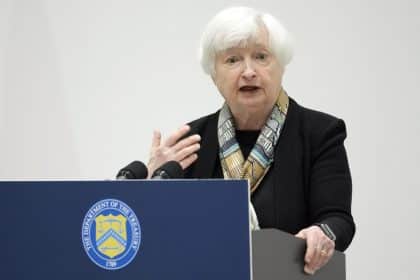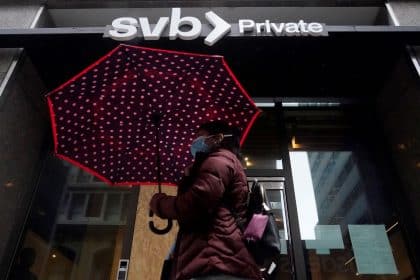Historic Hearing on Racial Inequality

Paulina Gonzalez-Brito’s grandfather bought a house in a southeast neighborhood of Los Angeles in the 1930s that was designated a “yellow area” under the U.S. Housing and Urban Development redlining map of the time, which singled out neighborhoods based on income and race. Redlining allowed banks to deny loans to people in these neighborhoods who would otherwise have been approved.
A yellow area was one “under threat of infiltration by Mexicans,” she said, and “we were the Mexicans they were worried about.”
Gonzalez-Brito, executive director at the California Reinvestment Coalition, testified at a Congressional hearing entitled, “Justice for All: Achieving Racial Equity Through Fair Access to Housing and Financial Services.”
“The failure [of the U.S. banking system] is not an accident, but a deliberate structural and systemic design,” she said.
Congress must adopt a “racially-just policy” approach that ensures people of color have the same access to resources, said Rashad Robinson, president of Color of Change. This has to be backed up with a strong enforcement commitment that holds financial institutions accountable for providing equal housing and credit services, he added.
This is even more important in the midst of the pandemic as Black and Latino communities are experiencing higher rates of unemployment, foreclosures and evictions during the current pandemic-related recession. If the U.S. wants to stop setting communities of color up to fail, Robinson said, policies and economic recovery need to be devoid of racial bias.
Rep. Alexandria Ocasio-Cortez, D-N.Y pointed back to President Franklin Roosevelt’s 1930 New Deal as riddled with policies that “prevented Latino and Blacks from buying into [the] American dream.” The “wealth gap” between Whites and people of color has been “inherited by generations.”
“Policy created this, policy needs to fix this,” Ocasio-Cortez added.
Gonzalez-Brito said that in the subprime mortgage crisis that fueled the Great Recession in 2008, Black and Latino communities suffered a much greater loss of wealth than their White counterparts. These millions of dollars in foreclosed homes went to “corporate landlords” on Wall Street who now run over 2 million apartment units across the country. By the end of February, she added, these corporate landlords have already filed for evictions of 16,000 people.
“These corporations have amassed $300 billion for the prospect of purchasing pandemic-hit real estate,” Gonzalez-Brito accused. In the case of unavoidable foreclosures, these properties should be donated or sold at a discount to nonprofit developers for affordable housing or community land trusts, she proposed.
From “redlining” to the makeup of credit scoring, the “colic financial systems” have allowed banks to make decisions on who advances economically based on prejudices, Robinson said. Considering a great number of people of color are “unbanked,” witnesses said, credit scores should take into historical information like rental history not just credit card payment histories when not everyone has a bank account.
Despite fair lending laws – like the Fair Housing Act and Equal Credit Opportunity Act – now making these discriminatory practices illegal, the modern-day redlining practices still occur and will continue to do so due to lax enforcement, Robinson said.
“Having non-discriminatory lending laws is meaningless when there is no one to stop the banks from engaging in modern-day redlining to deny black people homeownership,” he said.
“The myth of personal agency and bootstrap easily falls apart when we begin to look closely,” said Gonzalez-Brito, saying that their bootstraps were “cut off when [they] were denied into generational wealth through historical redlining” resulting in White homeownership rates exceeding Black and Latino rates by 30 and 26 percentage points, respectively.























